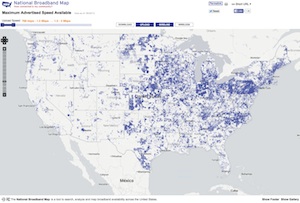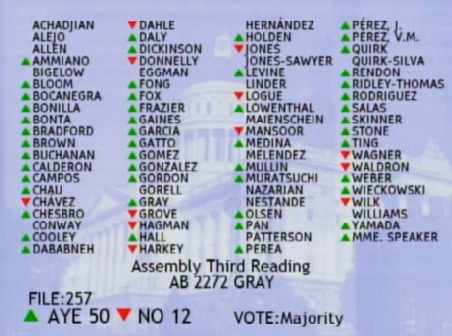Rumored FCC upload standard not designed for transparency
broadband, connect america fund, cpuc, fcc, national broadband map, public policy

Might be substandard, but impossible to tell for sure. Click for bigger version.
The FCC’s definition of adequate broadband service as 4 Mbps down and 1 Mbps up has long been outdated. The California Public Utilities Commission has been working with a minimum of 6 Mbps down and 1.5 Mbps up since 2012, when it adopted it as the threshold for determining which areas would and would not be eligible for broadband construction money from the California Advanced Services Fund.… More









